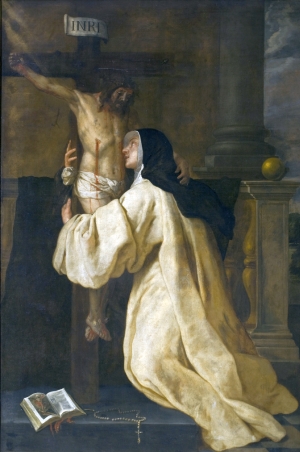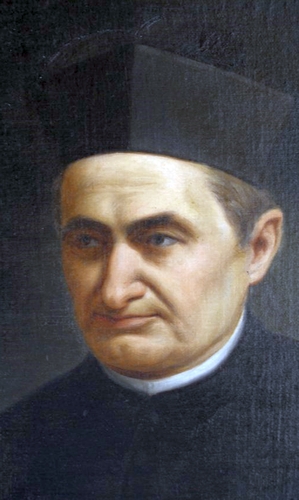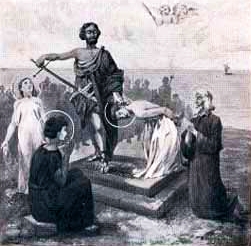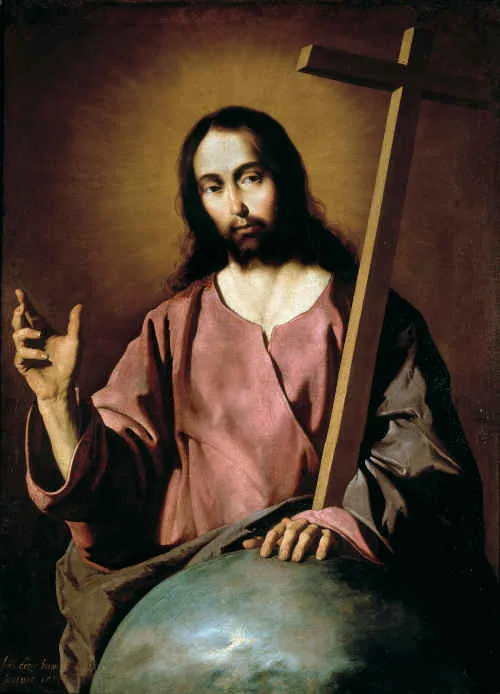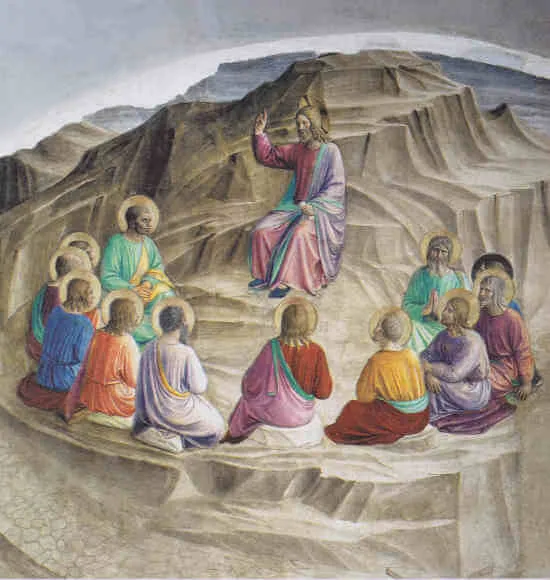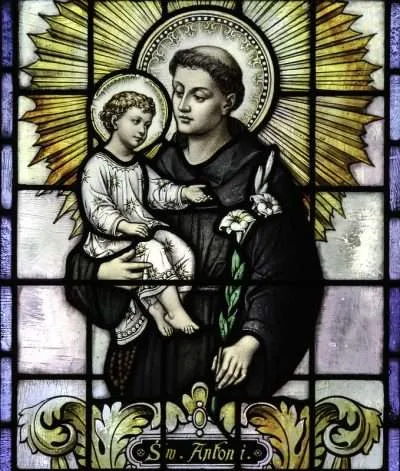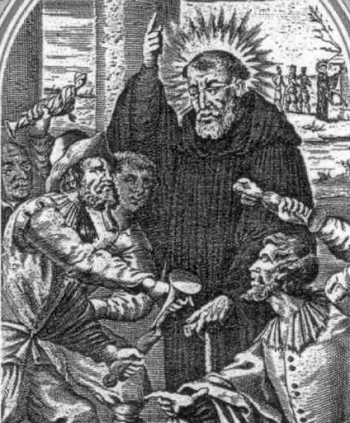Saint Anthony of Padua is one of the most revered saints within the Catholic Church. He was born in Lisbon, Portugal and was given the name Fernando Martins de Bulhões. His parents were wealthy nobility who provided a good education for him as a youth, most likely at the Cathedral school in Lisbon. At the age of fifteen, Fernando decided to enter religious life and joined the Canons Regular of St. Augustine, not far from his home. During his two years with the canons, he excelled in his studies and prayer. However, being so close to his home led to frequent visits from family and friends, prompting Fernando to desire greater solitude to more deeply embrace his vocation. He moved to Coimbra, just over 100 miles south of Lisbon, to join the Santa Cruz Monastery. At Santa Cruz, Fernando enjoyed nine years of excellent formation, studying, praying, and growing in virtue. After completing his formation in 1220, Fernando was ordained a priest.
During his nine years of formation in Coimbra, a small group from the newly-founded Franciscan Order took up residence nearby in a hut dedicated to Saint Anthony of Egypt. Fernando came to know these friars and was impressed by their simplicity, poverty, humility, and radical dedication to Christ. The Franciscans, founded by Saint Francis of Assisi only eleven years prior to their arrival in Coimbra, were a new and rapidly growing order within the Church. They were traveling preachers, relying upon divine providence rather than the income produced by large estates. They owned nothing except for the single piece of clothing they wore.
One day, news reached Coimbra that five Franciscan missionaries had been martyred in Morocco by Muslims. The King of Portugal ransomed their bodies, which were then brought back in a solemn procession to Coimbra for burial. The courage of these martyrs, coupled with the witness of their fellow friars, so impressed Fernando that he requested and received permission to leave the Canons Regular and join the Franciscans. He took the name Anthony after Saint Anthony of Egypt, the patron of the friars’ house in Coimbra.
Desiring to emulate these five martyrs, Father Anthony sailed to Morocco to preach to the Muslims. However, he soon fell seriously ill and required medical attention, prompting his return journey to Portugal. A storm blew his ship off course, resulting in a landing in Sicily instead. Shortly after Father Anthony recovered from his illness, Saint Francis called the famous “Chapter of Mats” in Assisi. Most of the Franciscan Friars attended, including one of their newest members, Father Anthony.
In 1209, Saint Francis founded his order with twelve members. By 1221, the number of Franciscan friars had grown to about 5,000. Such rapid growth brought not only zeal and enthusiasm, but also growing pains, divisions, and the need for clarity. At the General Chapter of Mats, Saint Francis resigned as the head of the order, turning leadership over to those he felt were more qualified. He preferred a life of greater humility, poverty, simplicity, and prayer. It was at that Chapter that Father Anthony and Brother Francis likely met for the first time. Shortly afterwards, Father Anthony was assigned to the hermitage of Monte Paola in Forli.
Anthony’s initial time in Forli was spent in solitude, study, and prayer. One day, due to confusion between the Dominicans and Franciscans, no one was assigned to preach at a first Mass in the local church. At the last minute, Father Anthony reluctantly agreed to preach. His sermon left the congregation in awe of his exceptional gift for preaching, his profound knowledge of the Sacred Scriptures, and his depth of holiness. From then on, Father Anthony became a well-known and sought-after preacher, changing many lives with his humble, down-to-earth, yet theologically profound preaching. He drew on the storehouse of wisdom from ancient saints but never presented himself in a proud or arrogant manner. His allegorical method of preaching sought to bring out the symbolic and hidden meanings of the text in a way that connected with people. His preaching and humble wisdom even caught the attention of Saint Francis, who was concerned about higher education for the friars, fearing that advanced studies could lead to pride and undermine the order’s mission. In Father Anthony, however, Francis found someone he could trust and put him in charge of the theological training of the friars preparing for ordination.
Father Anthony continued to preach far and wide for the next several years until his death at the age of thirty-five. One day, he was even invited to preach to the pope and the cardinals. During that sermon, Father Anthony was given the gift of tongues, enabling everyone present to understand him in his native language. Pope Gregory IX was so impressed with Anthony’s insight into Scripture that he referred to him as the “Ark of the Testament.” The pope asked Father Anthony to compose sermons for Sundays and feast days of the liturgical year, which he did in the form of outlines and commentaries on the Scriptures. It is those sermons that later led to him being named a Doctor of the Church with the unique title of “Evangelizing Doctor.”
Many other legends surround Father Anthony’s preaching and miracles. He is said to have preached to fish one day when the heretical townspeople had rejected him. When they saw the fish sticking their heads out of the water to listen attentively, the people converted. For this reason, he is often called the “Hammer of Heretics.” He is known as the patron saint of lost items because one day a friar stole a Gospel book from Father Anthony and when Father Anthony prayed for its return, the friar was so convicted in his heart that he returned it and repented.
Saint Anthony is often depicted holding the Child Jesus, a portrayal inspired by an account of a friar who reportedly saw Anthony in deep prayer, conversing with the Christ Child. Sacred Scripture is also frequently featured in art as a symbol of his profound knowledge of Scripture. Lilies, signifying his poverty and chastity, are present in many depictions.
Although Saint Anthony lived just thirty-five years, God used him in powerful ways. His life bears testament to the idea that the quality of life supersedes its length. “Quality” of life can only be attained through grace, and Saint Anthony received an abundance of grace in his life. It’s worth reflecting on the importance of seeking as much holiness as possible in life. Too often, we pursue longevity rather than holiness. However, many of the great saints, including Saint Anthony, lived on this earth for only a brief period. As we honor this great saint, remember that God wants you to spend whatever time you have left on earth dedicated to growing in holiness and serving His holy will. Doing so will imbue your life with a quality that far surpasses mere longevity.
Source: https://mycatholic.life/saints/saints-of-the-liturgical-year/june-13–st-antony-of-padua/



